Sikhs in Germany – Building Faith and Community in Modern Europe
Germany, the land of poets, philosophers, and thinkers, is home to one of the lesser-known yet deeply rooted Sikh communities in Europe. Though small in number, the Sikhs of Germany represent a remarkable story of faith, adaptation, and perseverance — a story still being written through generations that bridge Punjab and Europe. academic.oup.com
Early Arrivals of Sikhs in Germany: From Punjab to the Rhine
The Sikh presence in Germany began to take shape in the late 1960s and 1970s, when Punjabi migrants arrived seeking industrial and labor opportunities in a post-war, rebuilding Germany. Others came as students, scholars, and later, as asylum seekers during the unrest in Punjab in the 1980s.
Today, the Sikh population in Germany is estimated between 25,000 and 40,000, with communities concentrated in Frankfurt, Cologne, Hamburg, Munich, and Stuttgart. Over time, these groups have established Gurdwaras (Sikh temples), youth networks, and cultural associations that keep their faith and language alive in a foreign land. quora.com
Building Community: The Rise of Sikh Institutions

The first Gurdwaras in Germany emerged in the 1970s, often in rented halls or converted houses. The most notable among these is the Gurdwara Sri Guru Nanak Sabha in Frankfurt, which today stands as a central hub for Sikh gatherings, kirtan programs, and international visitors.
Another significant landmark is the Gurdwara Guru Nanak Darbar in Cologne (Köln). Established by early Punjabi migrants, it has become a cultural bridge — offering langar (community kitchen) to all visitors and welcoming Germans who wish to learn about Sikhism. The Cologne Gurdwara regularly hosts interfaith events, embodying the Sikh principles of equality and universal brotherhood. ssgberlin.de
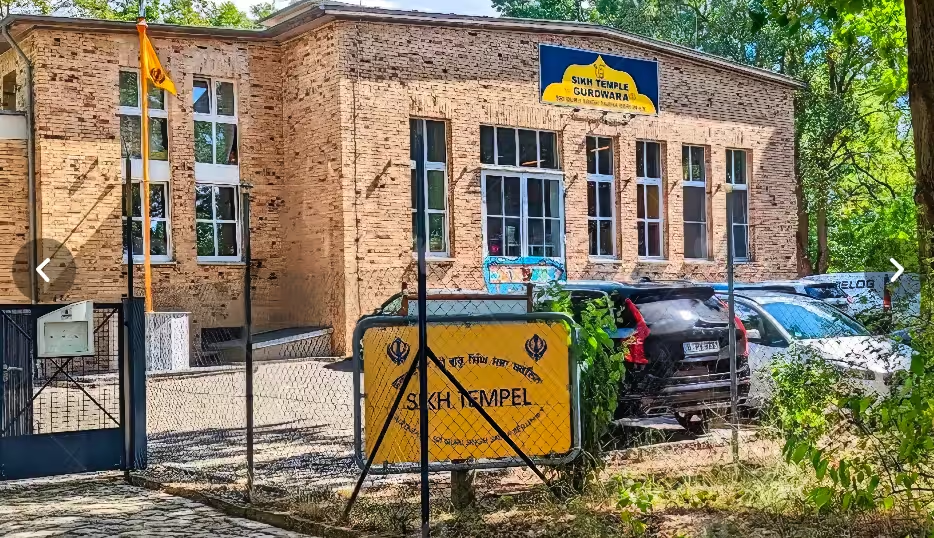
A Turning Point: When Sikh Girls Took the Stage
In 2009, something quietly revolutionary happened at a Sikh youth camp in Frankfurt. For the first time in German Sikh history, a young Sikh girl performed the Ardas (final prayer), and another conducted the Sukh Asan ceremony — respectfully closing the Guru Granth Sahib for the day.
Until then, such religious roles were traditionally reserved for men. The act, though simple, symbolized a new awakening among second-generation Sikhs in Germany — a generation balancing tradition with a modern sense of equality.
This event inspired Sikh camps across Europe to adopt more inclusive participation, showing how the Sikh spirit adapts and evolves without losing its essence. sikhnet.com
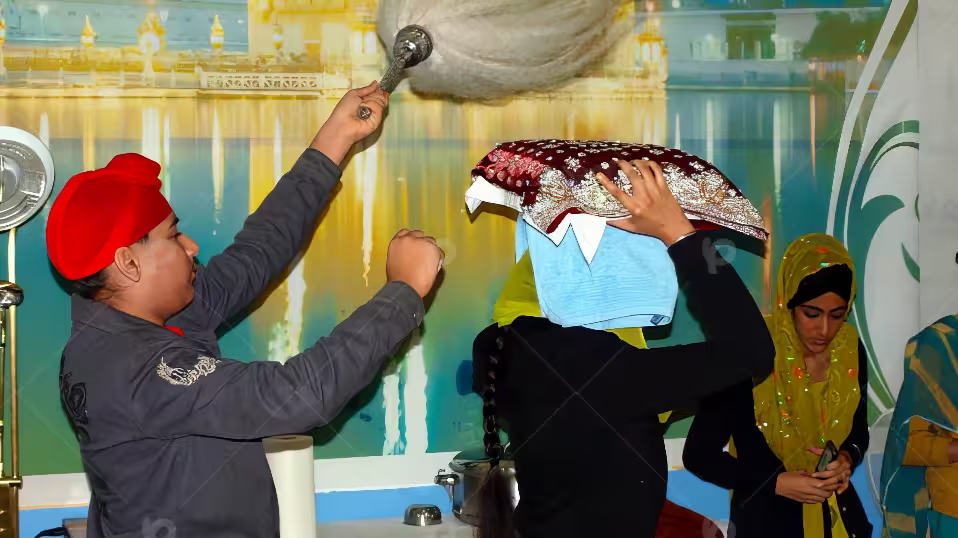
A Community Tested: Challenges and Controversies
No diaspora story is without its trials. The Sikh community in Germany, too, has faced its share of tensions — both internal and external.
The Spy Scandal
In 2019, German authorities uncovered that a couple of Indian origin had been spying on Sikh and Kashmiri groups in Germany for India’s external intelligence agency (RAW). The revelations shocked the community and created fears of surveillance among activists involved in Sikh political or human rights issues. The incident underscored how transnational politics sometimes spill into diaspora spaces, even in peaceful countries like Germany. dw.com

Disputes Over Religious Leadership
There have also been internal rifts — like the well-publicized dispute at the Frankfurt Gurdwara over preaching by a visiting Sikh preacher, Panthpreet Singh. Differing interpretations of Sikh theology occasionally lead to disagreements, reminding us that diaspora communities are microcosms of the broader Sikh world — diverse, passionate, and sometimes divided in vision.
Two Sikh groups clashed at the Sikh Centre Gurudwara Frankfurt (Germany) over a programme by Panth Preet Singh, a preacher from Punjab. Police had to intervene to protect the preacher when he was reciting his Katha (story of Sikh preaching) at the gurdwara.
This intolerable behaviour has done much to tarnish the image of Sikhs once again, in a world where Sikhs are already mis-identified extremist Muslims, due to the presence of a beard and turban in their appearance. Sikhs at large have being doing much to correct this with proactive community projects such as langar on the street, to help swing around public perception to appreciate the loving nature of Sikhs and their way of life. sikh24.com

Denial of Final Rites
More recently, a Sikh family in Singen, southern Germany, alleged that they were denied permission to perform Bhog and Antim Ardas (final rites) for their deceased mother by the local Gurdwara committee. The family appealed to the Akal Takht in Amritsar for justice, turning a personal tragedy into a wider discussion on compassion, authority, and community responsibility.
Balwinder Singh, a long-time resident of Singen, said that Daljit Singh and Paramjit Singh lost their mother recently and approached the Gurdwara to conduct the final rites. However, their request was refused by the Gurdwara committee.
The sangat said they had urged the Gurdwara committee to reconsider the decision, reminding them that the Guru’s house is open to all and highlighting the Sikh values of compassion and inclusion.
“But the committee didn’t listen or show any intention to resolve the issue with understanding or care,” Balwinder alleged.
When contacted, Davinder Singh, President of Gurdwara Singh Sabha, Singen, claimed that the management acted on advice from local police. He alleged that the individuals involved had previously clashed with members of the sangat, causing disturbances. As a result, the police reportedly advised the Gurdwara not to permit them entry. msn.com
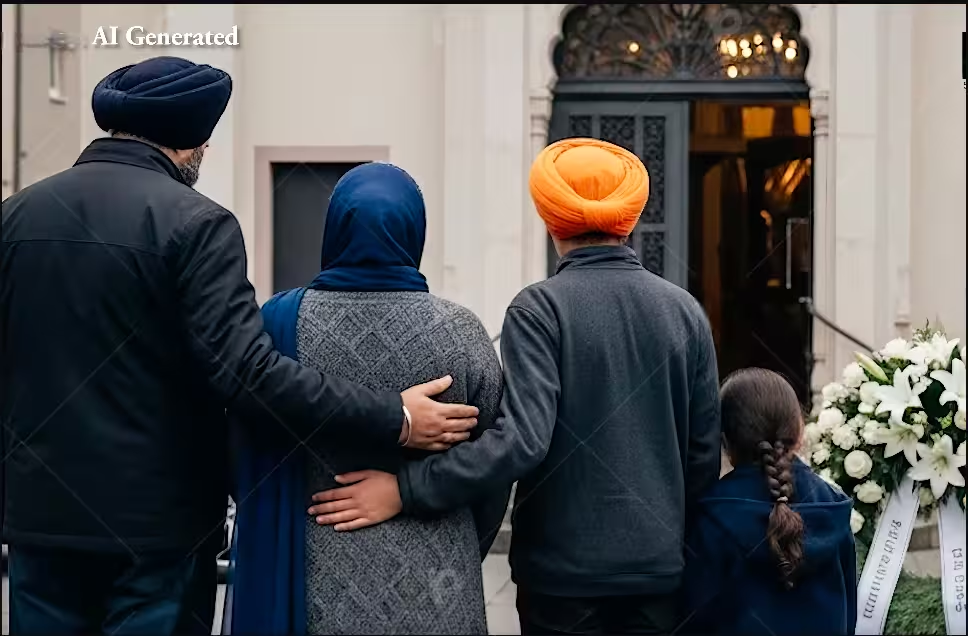
A Collective Stand: The Nanakshahi Calendar
Despite such challenges, the Sikh Sangat in Germany has shown unity on key spiritual matters. In a historic move, several Gurdwaras collectively decided to adopt the Mool Nanakshahi Calendar, standardizing Gurpurab (Guru anniversary) dates in alignment with Sikh tradition rather than the older Bikrami calendar.
This collective decision was not just about dates — it was a statement of unity and commitment to preserving the purity of Sikh temporal identity in the modern world.
The Mool Nanakshahi Calendar provides information on Sikh religious dates, historical events, and the synchrony of the Sikh calendar with the tropical (solar) year. It gives the current Nanakshahi year and date, along with the names of months and the days of specific Sikh festivals, or Gurpurbs, which are now permanently fixed, unlike in the older Bikrami system.
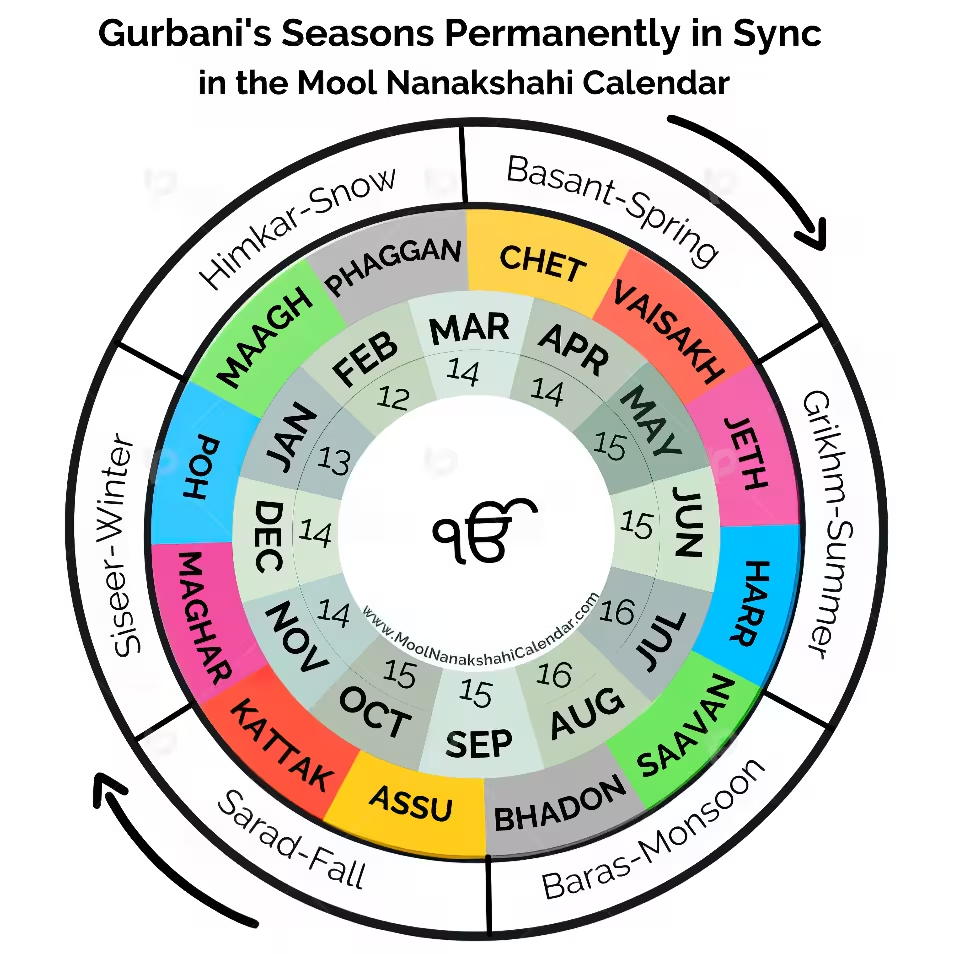
The Next Generation: German-Born Sikhs
The younger Sikh generation in Germany faces a different set of questions. They speak German as their first language, attend local schools, and navigate cultural intersections daily. Yet many remain deeply connected to Sikhism — volunteering at Gurdwaras, participating in langar, and learning Gurmukhi.
For these young Sikhs, the challenge is less about survival and more about visibility — ensuring that Sikh identity (from turban to kesh) is understood and respected in an increasingly secular Europe.
One young Sikh from Hamburg said during an interfaith dialogue,
“We are Germans by birth, Punjabis by heritage, and Sikhs by soul. Our turban reminds us that we belong everywhere — but forget nowhere.”
How do Germans feel about Sikhs?
In everyday life, most Germans don’t know much about Sikhism, so they often make quick assumptions — usually thinking you’re Muslim or from somewhere in the Middle East or Central Asia. About 90% of people won’t care at all, and many will even be friendly or curious. You might get mixed reactions: some confused smiles, a few respectful questions, or the occasional odd comment like “aren’t you hot in that turban?” or “what’s under it?” Once in a while, a drunk person might yell something like “adapt to our culture,” but outright racism or serious discrimination that actually stops you from doing something is quite rare.
How Sikhs in Germany handle or respond to such situations
Most Sikhs in Germany handle these moments with patience and a sense of calm. Many use curiosity as a chance to explain their faith or the meaning of the turban, often turning awkward encounters into friendly conversations. Gurdwaras in cities like Frankfurt, Cologne, and Munich regularly host open days and langar events where Germans are invited to visit, eat, and learn about Sikh culture firsthand. Over time, such interactions have helped build understanding and respect. Younger Sikhs, especially students and professionals, often play a key role in bridging this gap—by confidently sharing their identity at work, in universities, and on social media.
Conclusion
The story of Sikhs in Germany is one of faith under quiet transformation — from industrial migrants to integrated citizens, from temple builders to cultural ambassadors.
Each Ardas performed in a German Gurdwara, each bowl of langar served to a stranger, and each young Sikh who proudly ties a turban in Berlin or Cologne adds a new verse to this ongoing German chapter of Sikh history. Composed from reliable sources by the team of globalsikhiwiki.com
-
Sikhs in Goa
Sikhs in Goa: History, Presence, and Cultural Life Welcome to Global Sikhi Wiki, your comprehensive resource for exploring Sikh history, culture, and communities. Today, we delve into the vibrant story of
Published by Pritam -
Sikhs in Iceland
Sikhs in Iceland: A Small Community in the Land of Fire and Ice Welcome to Global Sikhi Wiki, your comprehensive resource for exploring Sikh history, culture, and communities. Today, we delve
Published by Pritam -
Sikhs in Venezuela
Sikhs in Venezuela: A Journey of Faith and Identity Welcome to Global Sikhi Wiki, your comprehensive resource for exploring Sikh history, culture, and global communities. Today, we delve into the
Published by Pritam -
Sikhs in Kerala
Sikhs in Kerala: A Unique Chapter in Sikh Migration Welcome to Global Sikhi Wiki, your comprehensive resource for exploring Sikh history, culture, and communities. Today, we delve into the vibrant story
Published by Pritam -
Sikhs in Greenland
Sikhs in Greenland: A Glimpse into the Frozen Diaspora Welcome to Global Sikhi Wiki, your comprehensive resource for exploring Sikh history, culture, and global communities. Today, we delve into the
Published by Pritam -
Sikhs in Delhi
Sikhs in Delhi- Overview Delhi occupies a foundational position in Sikh history, not as a peripheral settlement but as a sacred and political site shaped during the Guru period and
Published by Pritam -
Sikhs in Shamshabad
Sikhs in Shamshabad: How a Tribal Village in Telangana, India Turned to Sikhism Welcome to Global Sikhi Wiki, your comprehensive resource for exploring Sikh history, culture, and communities. Today, we delve
Published by Pritam -
Canadian Sikh lawyer Oath
Prabhjot Singh — Canadian Sikh Lawyer Who Challenged the Mandatory Oath Who Is Prabhjot Singh? Prabhjot Singh (full name Prabhjot Singh Wirring) is a Canadian lawyer of Sikh heritage. He
Published by Pritam -
Sikhs in Ukraine
UNITED SIKHS has been a prominent humanitarian responder in Ukraine since the 2022 invasion, providing immediate relief like food, medical aid, and shelter near borders and within war-torn cities like Kyiv and
Published by Pritam -
Sikhs in Austria
Sikhs in Austria: A Flourishing Community in the Heart of Europe Welcome to Global Sikhi Wiki, your comprehensive resource for exploring Sikh history, culture, and global communities. Today, we delve
Published by Pritam -
Sikhs in Finland
Sikhs in Finland: Migration, Turban Rights, Gurdwaras Welcome to Global Sikhi Wiki, your comprehensive resource for exploring Sikh history, culture, and global communities. Today, we delve into the vibrant story
Published by Pritam -
Sikhs in Israel
Sikhs in Israel: A Hidden Chapter of Global Sikh History Welcome to Global Sikhi Wiki, your comprehensive resource for exploring Sikh history, culture, and global communities. Today, we delve into
Published by Pritam -
Sikhs in Chile
Sikhs in Chile: A Small but Vibrant Community in South America Welcome to Global Sikhi Wiki, your comprehensive resource for exploring Sikh history, culture, and global communities. Today, we delve
Published by Pritam -
Sikhs in Bermuda
Sikhs in Bermuda: A British Overseas Territory Welcome to Global Sikhi Wiki, your comprehensive resource for exploring Sikh history, culture, and global communities. Today, we delve into the vibrant story
Published by Pritam -
Sikhs in Belize
Sikhs in Belize — a small but significant thread in the Caribbean Welcome to Global Sikhi Wiki, your comprehensive resource for exploring Sikh history, culture, and global communities. Today, we
Published by Pritam -
Why a New York Street Honors a Sikh Guru
Why a New York Street Honors a Sikh Guru-Guru Teg Bahadur Ji Marg Way A Historic Honor in New York Welcome to Global Sikhi Wiki, your comprehensive resource for exploring
Published by Pritam -
Sikhs in Malaysia – From Struggle to Strength
Sikhs in Malaysia: A Tapestry of Courage, Faith, and Unyielding Spirit Welcome to Global Sikhi Wiki, your comprehensive resource for exploring Sikh history, culture, and global communities. Today, we delve
Published by Pritam -
Sikhs in France
Sikhs in Malaysia: A Tapestry of Courage, Faith, and Unyielding Spirit Welcome to Global Sikhi Wiki, your comprehensive resource for exploring Sikh history, culture, and global communities. Today, we delve
Published by Pritam -
Sikhs in Fiji
Sikhs in Fiji: A Journey of Resilience and Contribution in Modern Oceania Welcome to Global Sikhi Wiki! In this blog post, we explore the vibrant history and enduring legacy of
Published by Pritam -
Sikhs in Germany
Sikhs in Germany – Building Faith and Community in Modern Europe Germany, the land of poets, philosophers, and thinkers, is home to one of the lesser-known yet deeply rooted Sikh
Published by Pritam -
Sikhs in Japan
Sikhs in Japan : Small Community, Big Stories Among all the countries I’ve studied, Japan is perhaps the first where I found no illegal Sikh immigration network — just a
Published by Pritam -
Sikhs in Argentina
Sikhs in Argentina: Bibiana Jasbe Singh Kaur Born in Argentina, Bibiana straddles two identities. Though her Sikh ancestors forbade beef, she acknowledges that at social events and in local culture,
Published by Pritam -
The Heartbreaking Journey of Harjit Kaur
The Heartbreaking Journey of Harjit Kaur In the dusty villages of Punjab, where the mustard fields sway like whispers of forgotten dreams under the relentless Indian sun, Harjit Kaur was
Published by Pritam -
Sikhs in Mexico
Sikhs in Mexico: Forgotten Journeys and Resilient Roots By [ Global Sikhi Wiki Team] | Published on GlobalSikhiWiki.com | September 23, 2025 IST It was the early 1900s. Ships left
Published by Pritam -
The Bitter Exodus of Sikhs from Afghanistan
The Bitter Exodus of Sikhs from Afghanistan Picture this: The sun rises over Kabul's ancient bazaars in the 1970s, where the air hums with the chatter of turbaned Sikh traders
Published by Pritam
-
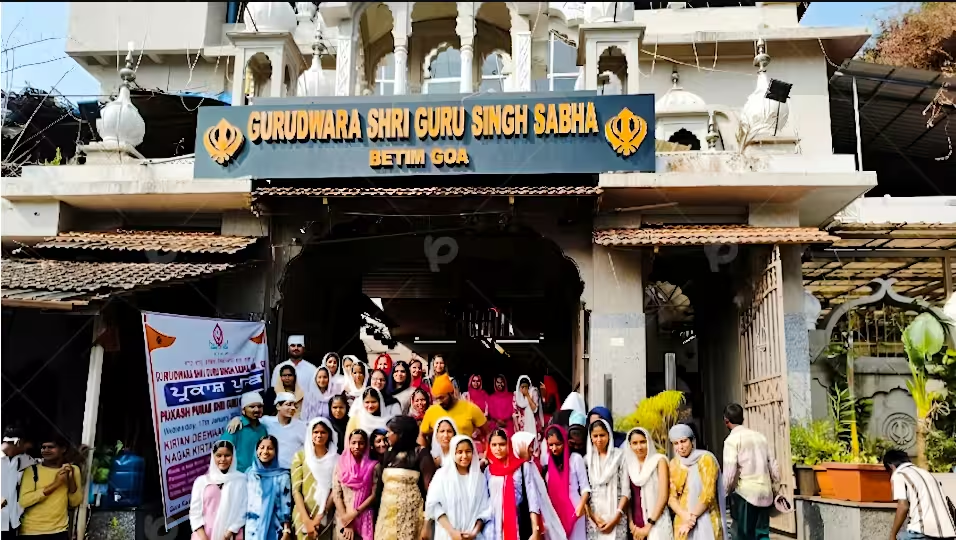 Sikhs in Goa
Sikhs in Goa
-
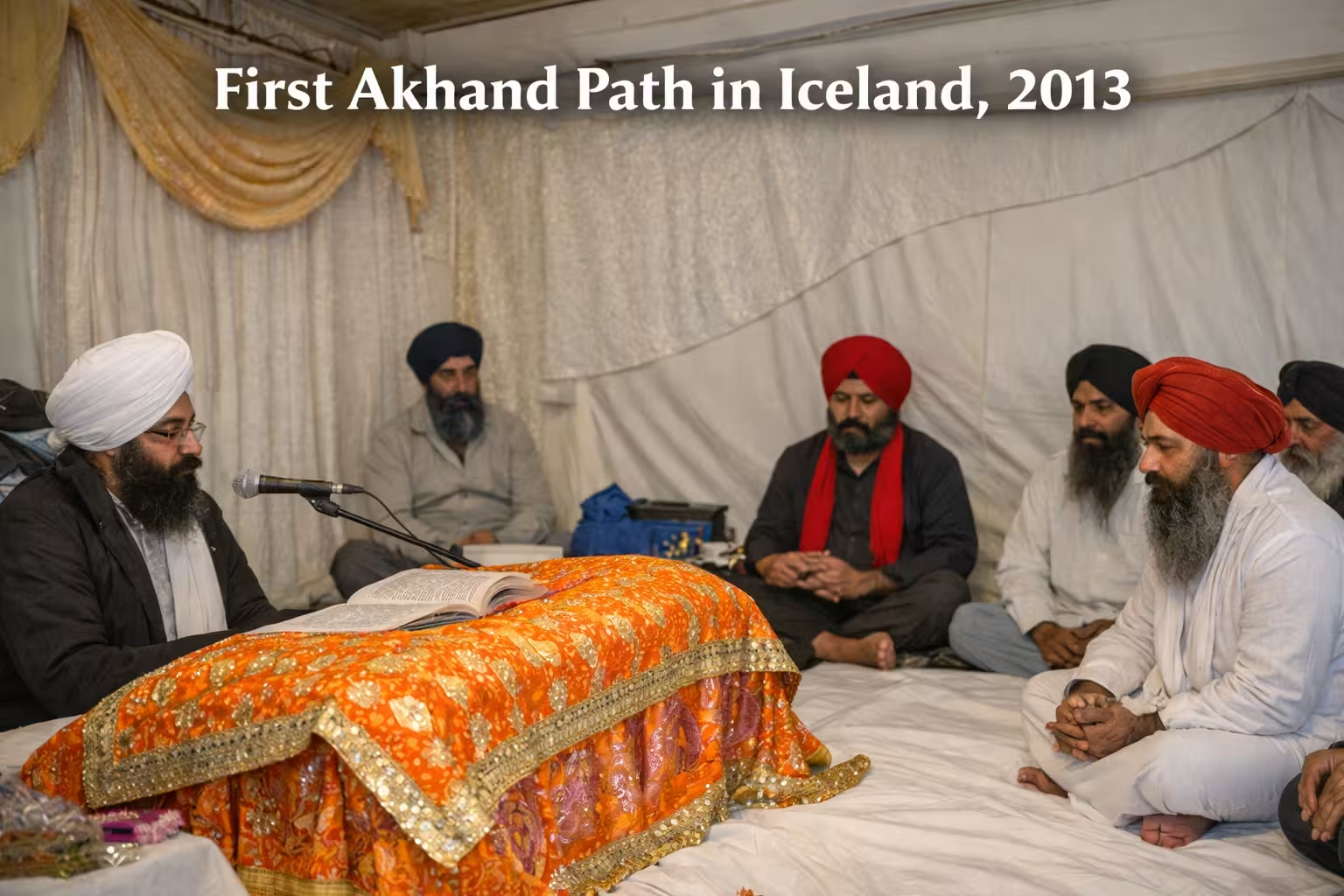 Sikhs in Iceland
Sikhs in Iceland
-
 Sikhs in Venezuela
Sikhs in Venezuela
-
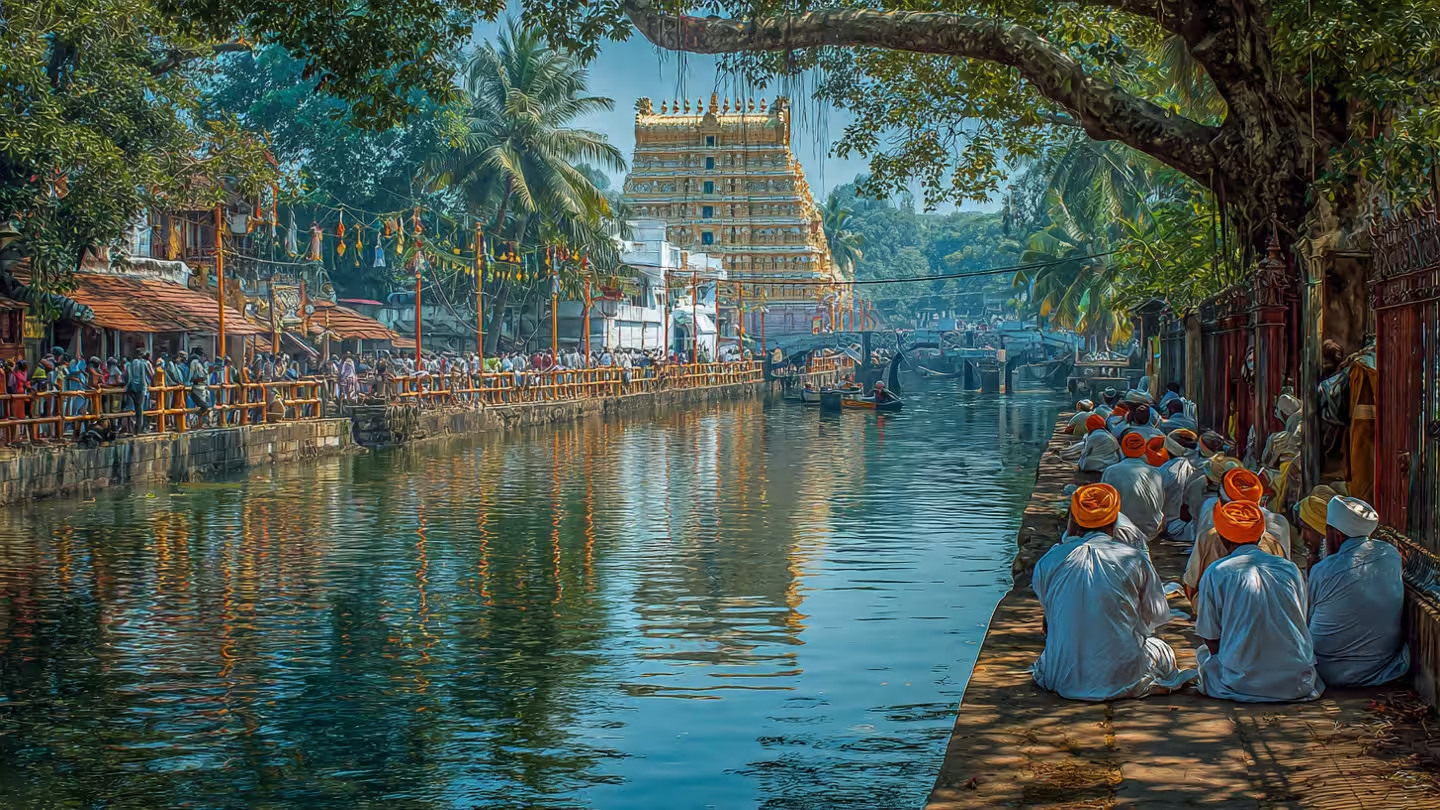 Sikhs in Kerala
Sikhs in Kerala
-
 Sikhs in Greenland
Sikhs in Greenland
-
 Sikhs in Delhi
Sikhs in Delhi
-
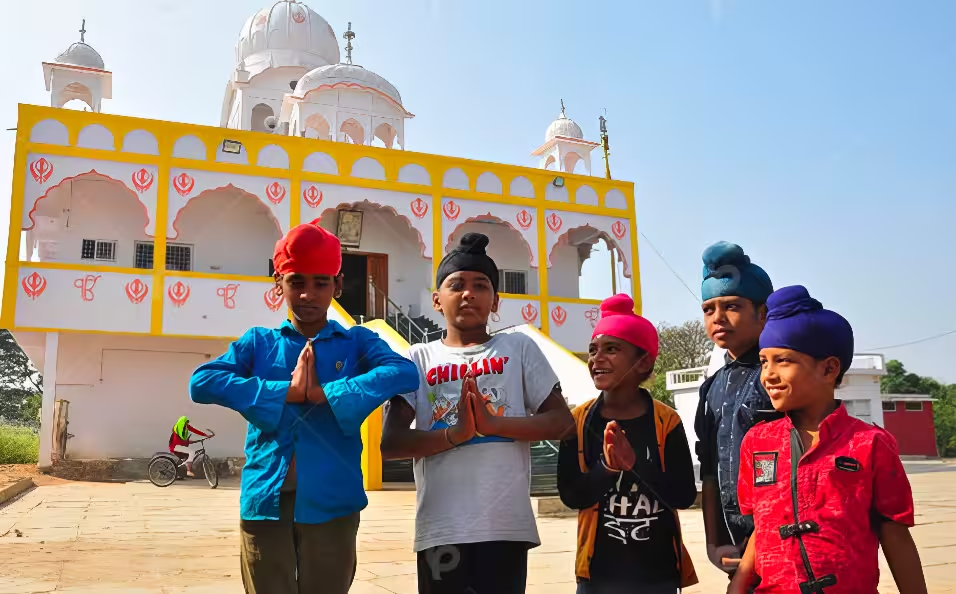 Sikhs in Shamshabad
Sikhs in Shamshabad
-
 Canadian Sikh lawyer Oath
Canadian Sikh lawyer Oath
-
 Sikhs in Ukraine
Sikhs in Ukraine
-
 Sikhs in Austria
Sikhs in Austria
-
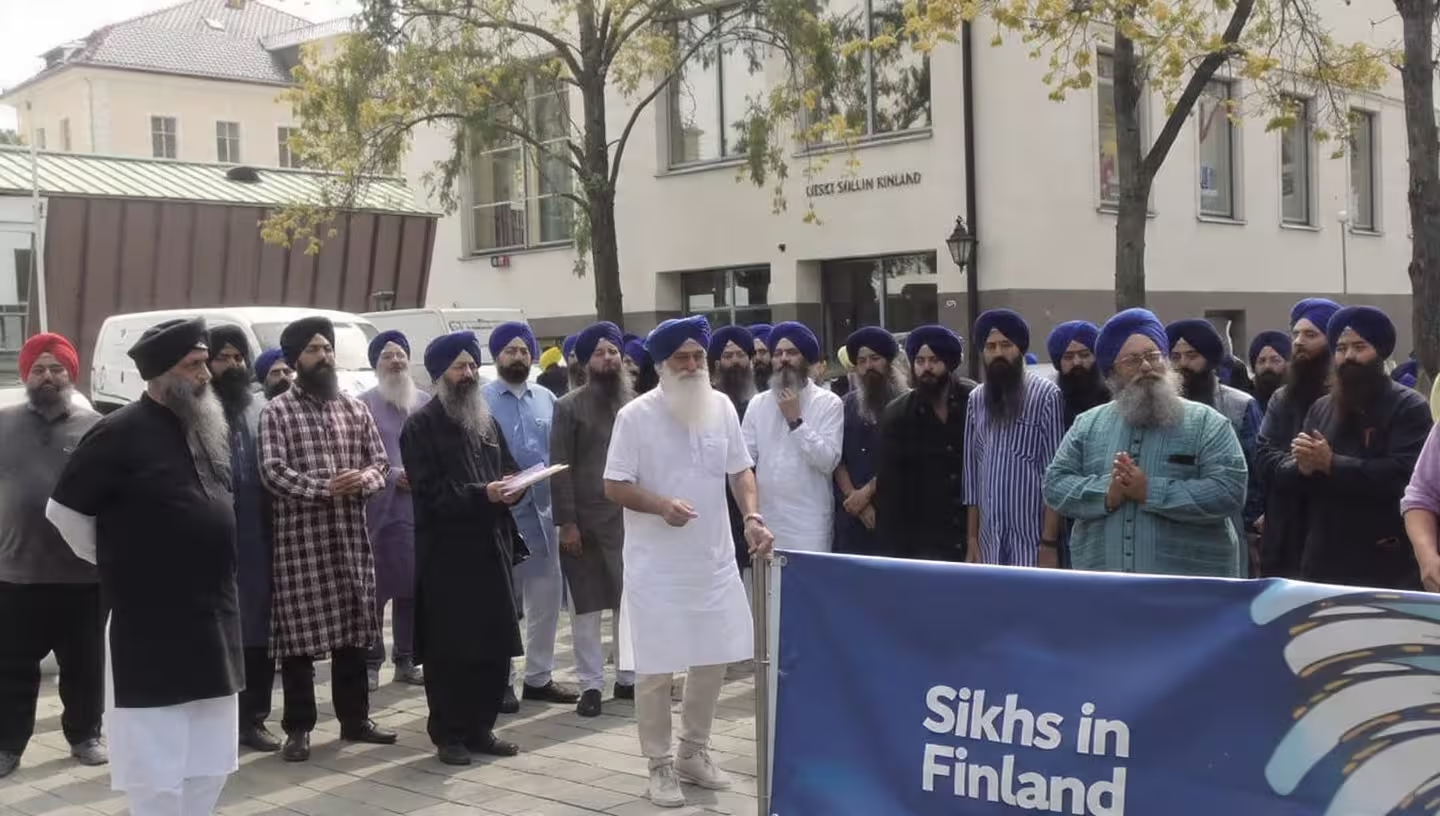 Sikhs in Finland
Sikhs in Finland
-
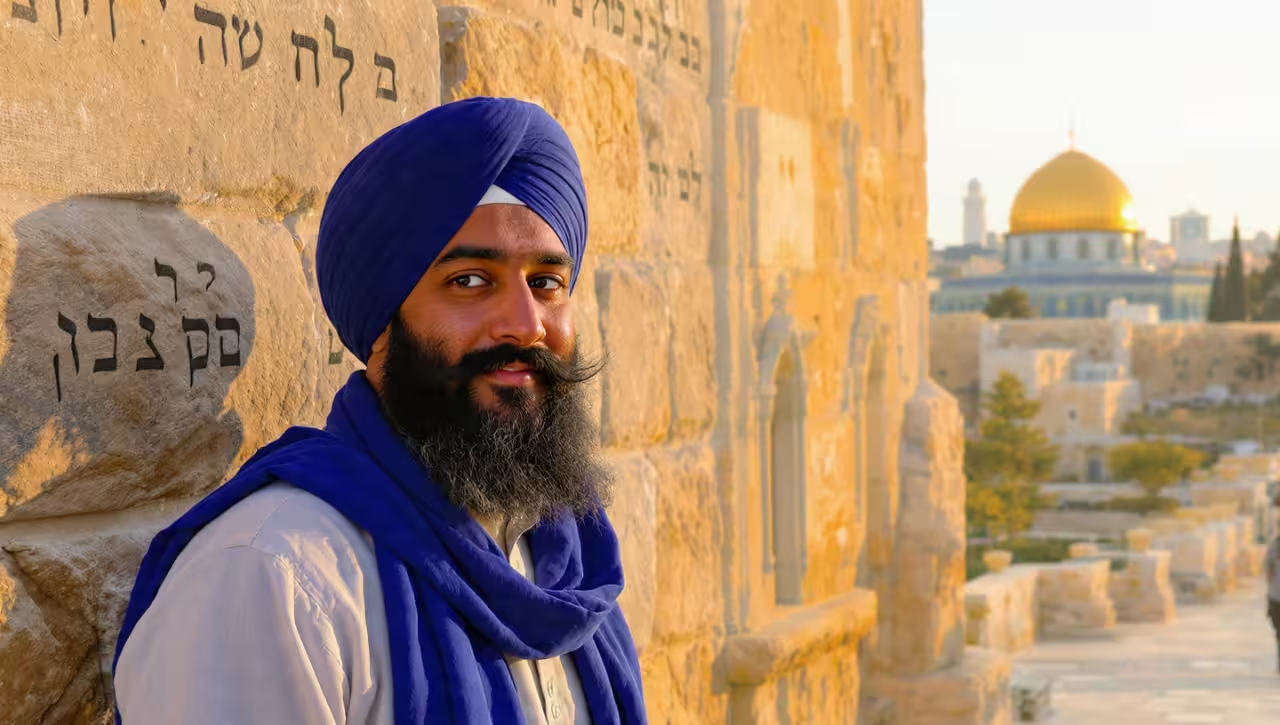 Sikhs in Israel
Sikhs in Israel
-
 Sikhs in Chile
Sikhs in Chile
-
 Sikhs in Bermuda
Sikhs in Bermuda
-
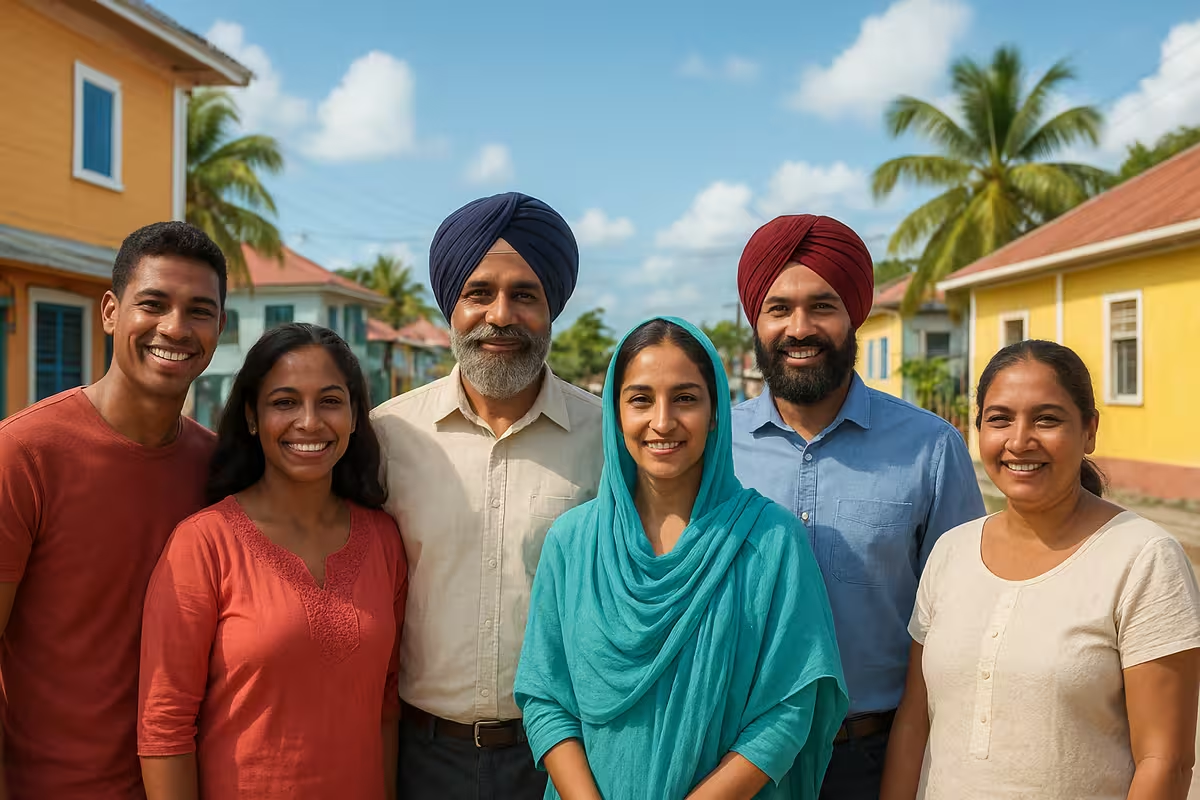 Sikhs in Belize
Sikhs in Belize
-
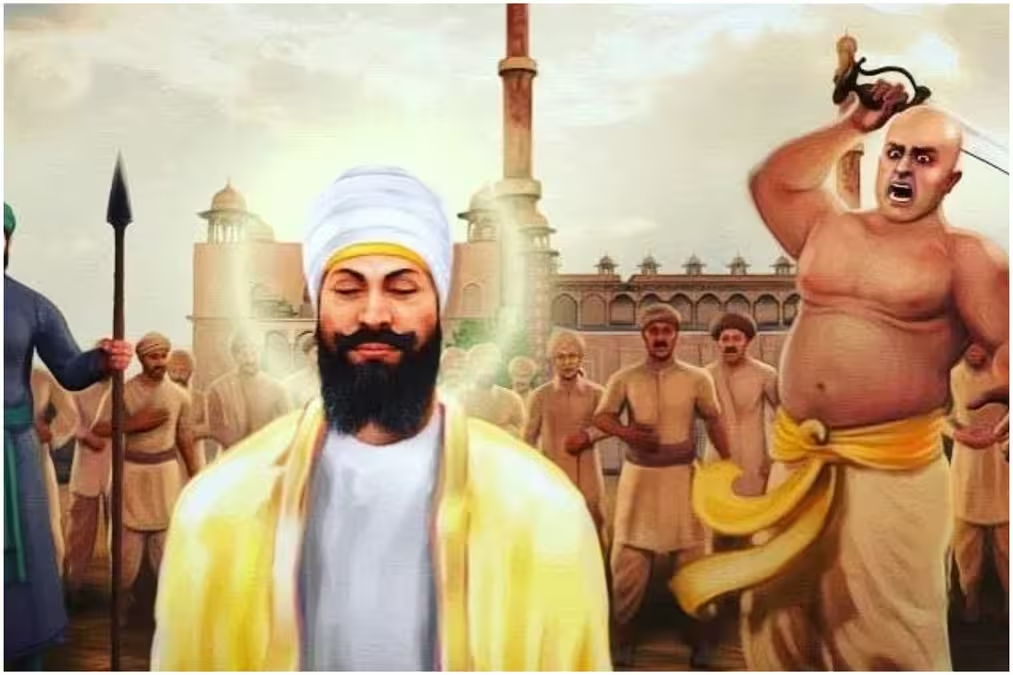 Why a New York Street Honors a Sikh Guru
Why a New York Street Honors a Sikh Guru
-
 Sikhs in Malaysia – From Struggle to Strength
Sikhs in Malaysia – From Struggle to Strength
-
 Sikhs in France
Sikhs in France
-
 Sikhs in Fiji
Sikhs in Fiji
-
 Sikhs in Germany
Sikhs in Germany
-
 Sikhs in Japan
Sikhs in Japan
-
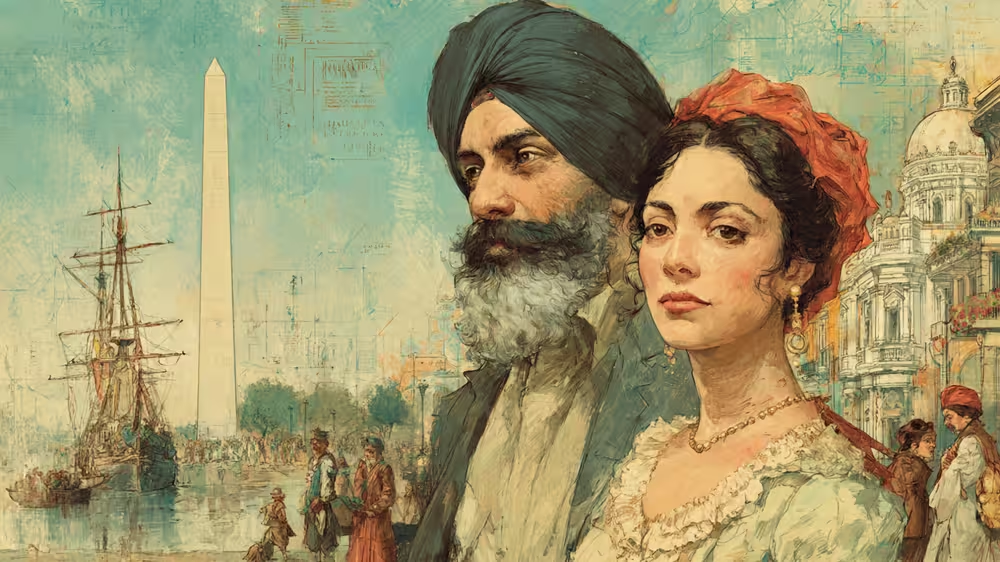 Sikhs in Argentina
Sikhs in Argentina
-
 The Heartbreaking Journey of Harjit Kaur
The Heartbreaking Journey of Harjit Kaur
-
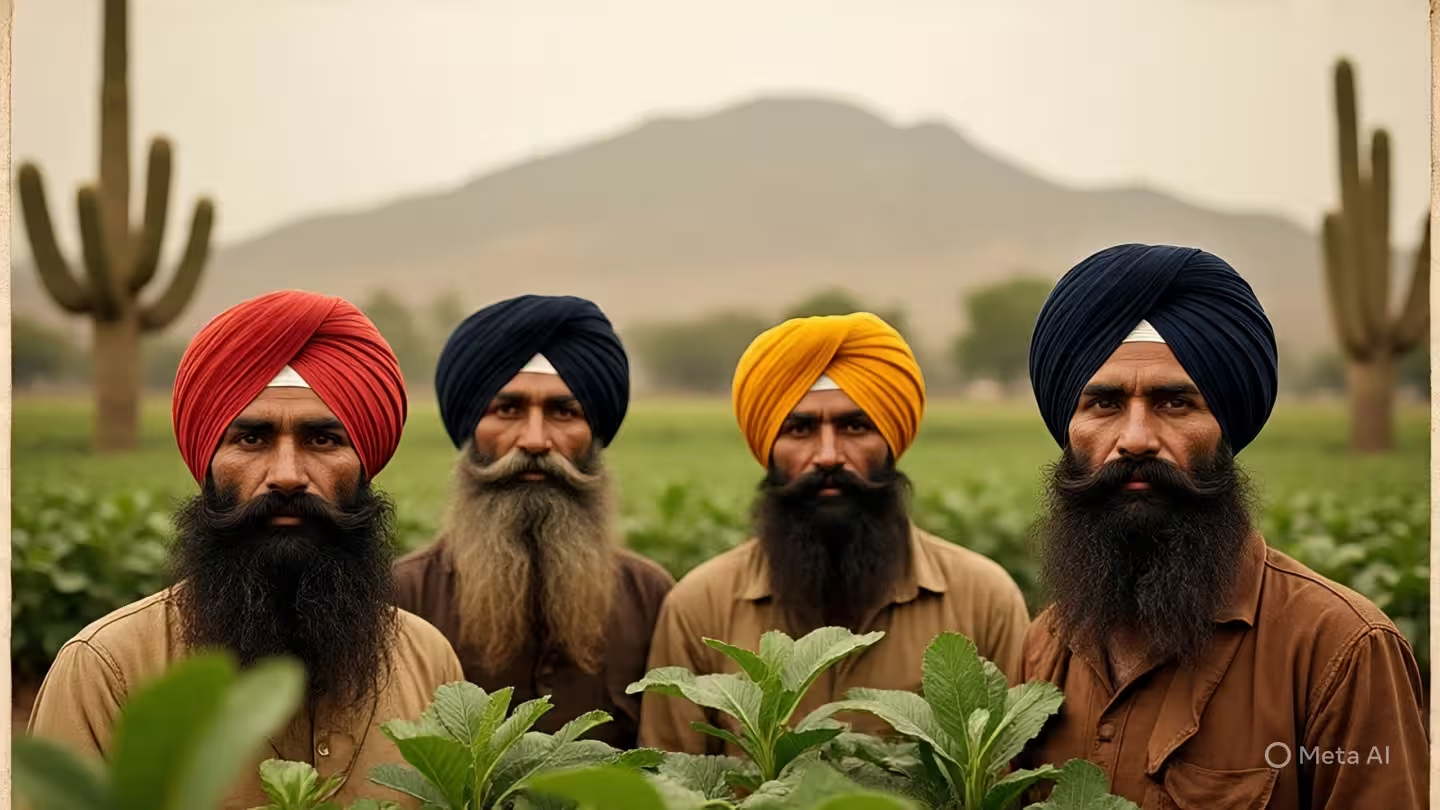 Sikhs in Mexico
Sikhs in Mexico
-
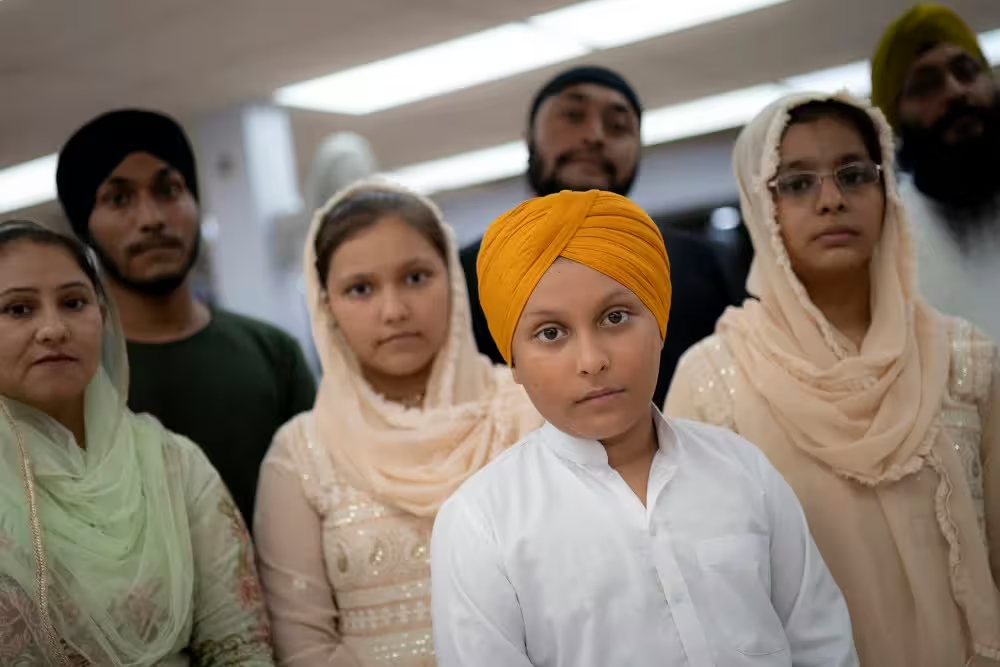 The Bitter Exodus of Sikhs from Afghanistan
The Bitter Exodus of Sikhs from Afghanistan